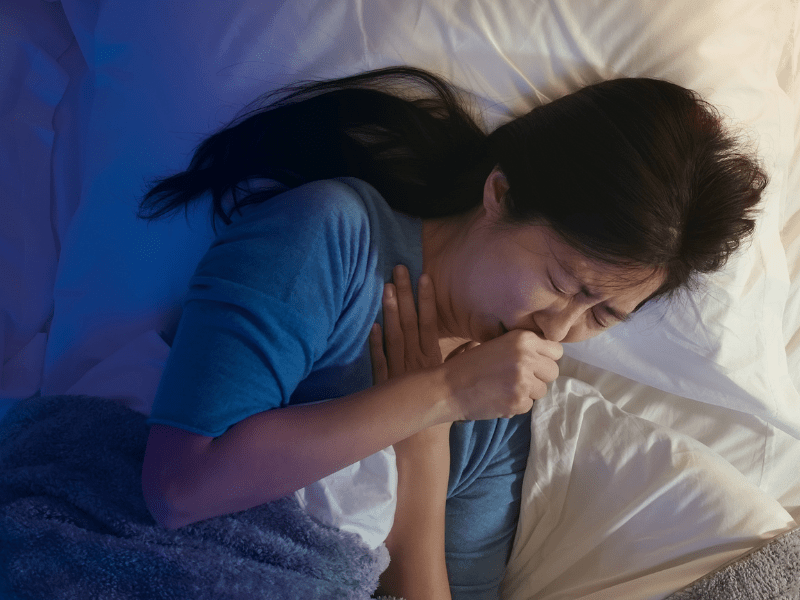Introduction
Ever wondered, "How much sleep do I really need?" It's a common question as the appropriate sleep duration varies at different stages in life. In this article, we'll delve into age-specific recommendations and factors that affect your slumber needs. Let’s unlock the secret to your optimal rest.
How Much Sleep Do You Really Need?
Experts recommend different amounts of sleep for individuals based on their age and specific needs. The ideal sleep duration can vary, but generally, adults should aim for around 7-9 hours of quality sleep per night to maintain optimal health and well-being.
Age-specific sleep recommendations
Sleep requirements vary significantly with age, as shown by scientific research. It's essential to understand that these recommendations are based on the average requirements for each age group, but individual needs might slightly differ.
|
Age Group |
Recommended Sleep Duration |
|---|---|
|
Newborns (0-3 months) |
14-17 hours |
|
Infants (4-11 months) |
12-15 hours |
|
Toddlers (1-2 years) |
11-14 hours |
|
Preschoolers (3-5 years) |
10-13 hours |
|
School-Age Children (6-12 years) |
9-12 hours |
|
Teenagers (13-18 years) |
8-10 hours |
|
Adults (18-64 years) |
7-9 hours |
|
Older Adults (64+ years) |
7-8 hours |
The National Sleep Foundation recommends these sleep durations to promote optimal health and well-being. Both babies and young children require more sleep than adults to support their rapid mental and physical development. Healthy adults, on the other hand, need at least seven hours of sleep per night to function optimally. When sleep needs are consistently met, it results in a healthier body and a mind better equipped to take on the day's challenges.
Health & Lifestyle Factors Also Determine Need for Sleep
There are several factors that can affect an individual's sleep needs. These factors include:
- Health conditions: Certain health conditions such as sleep apnea, insomnia, and restless leg syndrome can significantly impact a person's sleep needs. These conditions may cause disruptions in sleep patterns, leading to a higher need for sleep to feel rested.
- Lifestyle: The lifestyle choices we make can also influence our sleep needs. Factors such as physical activity levels, work schedules (such as shift work or night shifts), and use of electronic devices before bed can all affect the quality and duration of our sleep.
- Age: Sleep requirements vary depending on age. Newborns and infants require more sleep compared to adults, with recommended sleep durations ranging from 14-17 hours for newborns to 9-12 hours for school-aged children.
- Stress levels: High stress levels can disrupt sleep patterns and increase the need for more restful sleep. Chronic stress can lead to difficulty falling asleep or staying asleep, which in turn affects overall sleep requirements.
- Genetics: Some individuals may have a genetic predisposition to needing more or less sleep than average due to variations in their circadian rhythms.
- Medications: Certain medications, including those used for treating chronic illnesses or mental health disorders, may have side effects that impact sleep patterns and increase the need for more restorative rest.
- Pregnancy: Pregnant women often experience changes in hormonal levels which can disrupt their usual sleeping patterns and increase their need for more frequent naps or longer periods of nighttime rest.
The Importance of Getting Sufficient Sleep
Getting sufficient sleep is crucial for maintaining optimal physical and mental health. Inadequate sleep can lead to a range of negative consequences, including increased risk of chronic conditions such as obesity, diabetes, and cardiovascular disease. It can also impair cognitive function, affect mood regulation, and weaken the immune system. To ensure you are getting enough restorative sleep, it is important to establish healthy sleep habits and prioritize quality sleep every night.
Impact on physical and mental health
Getting sufficient sleep is crucial for both physical and mental health. Lack of sleep can take a toll on your body, affecting various aspects of your well-being. Physically, inadequate sleep can lead to increased risk of chronic conditions like obesity, diabetes, and heart disease. It weakens the immune system, making you more susceptible to illnesses. Sleep deprivation also impairs cognitive function and memory recall, hindering productivity and concentration throughout the day.
Moreover, insufficient sleep can have significant effects on mental health. It increases the likelihood of developing mood disorders such as anxiety and depression. When we don't get enough restorative sleep, our emotional regulation becomes compromised, leading to heightened feelings of irritability and stress. Additionally, lack of quality sleep can exacerbate existing mental health conditions or make it harder to manage them effectively.
Consequences of sleep deprivation
Sleep deprivation can have serious consequences for both your physical and mental health. Lack of sleep can lead to decreased cognitive function, difficulty concentrating, impaired decision-making abilities, and memory problems.
It also weakens the immune system, making you more susceptible to illnesses such as colds and flu. In addition, chronic sleep deprivation has been linked to an increased risk of developing conditions such as obesity, diabetes, heart disease, and even certain types of cancer.
Furthermore, it can contribute to mood disorders like depression and anxiety. To avoid these negative effects on your overall well-being, it is essential to prioritize getting enough quality sleep each night.
Tips for improving sleep quality and duration
To improve your sleep quality and duration, here are some helpful tips:
- Establish a consistent sleep schedule: Go to bed and wake up at the same time every day, even on weekends. This helps regulate your body's internal clock and improves sleep quality.
- Create a relaxing bedtime routine: Wind down before bed by engaging in calming activities such as reading a book, taking a warm bath, or practicing relaxation techniques like deep breathing or meditation.
- Create a sleep-friendly environment: Make sure your bedroom is cool, dark, and quiet. Use earplugs, eye masks, or white noise machines if necessary to block out any distractions that may disrupt your sleep.
- Limit exposure to electronic devices before bed: The blue light emitted by screens can interfere with the production of melatonin, a hormone that regulates sleep-wake cycles. Avoid using electronic devices such as smartphones or tablets for at least an hour before bedtime.
- Avoid caffeine and alcohol close to bedtime: Caffeine is a stimulant that can disrupt sleep, so try to avoid consuming it within six hours of bedtime. While alcohol may initially make you feel drowsy, it can disrupt your sleep later in the night.
- Exercise regularly but not too close to bedtime: Regular physical activity has been shown to improve sleep quality. However, exercising right before bed can interfere with your ability to fall asleep easily. Aim for at least 30 minutes of moderate-intensity exercise most days of the week.
- Manage stress levels: High levels of stress can make it difficult to fall asleep and stay asleep. Try incorporating stress-reducing techniques into your daily routine such as journaling, practicing mindfulness, or engaging in hobbies you enjoy.
- Limit daytime napping: If you have trouble sleeping at night, try to limit daytime napping or keep it short (around 20-30 minutes) and avoid napping too late in the day.
Conclusion
In conclusion, understanding how much sleep you really need is crucial for maintaining optimal health and well-being. While the recommended sleep duration for adults generally falls between 7-9 hours per night, it's important to remember that individual needs may vary based on factors such as age, lifestyle, and overall health. Prioritizing sufficient sleep can have far-reaching benefits for both your physical and mental health, so make sure to prioritize a good night's rest to support your overall wellness.
FAQs
1. What is the recommended amount of sleep for adults?
The National Sleep Foundation recommends that adults aged 18-64 get between 7-9 hours of sleep per night for optimal health and well-being.
2. How does age affect the amount of sleep needed?
Sleep needs vary depending on age. Infants require about 14-17 hours, school-age children need around 9-11 hours, teenagers typically need 8-10 hours, while older adults (65+) may find that 7-8 hours is sufficient.
3. Can you make up for lost sleep?
While it's possible to catch up on missed sleep, consistently not getting enough rest can have negative effects on your overall health and performance. Aim to prioritize regular sleep routines to avoid accumulating a "sleep debt."
4. What are the consequences of not getting enough sleep?
Not getting enough quality sleep can lead to various consequences including daytime fatigue, poor concentration and memory, impaired judgment and decision-making abilities, increased risk of accidents or injuries, weakened immune system functioning, mood swings or irritability, and long-term health problems such as obesity, diabetes, cardiovascular disease, and mental health disorders like depression and anxiety.
Your mattress is the foundation of great sleep. Experience the benefits of adjustable firmness and head-to-toe pressure relief with iSense. iSense hybrid and foam mattresses deliver customized comfort you can control. Our article on how heavy is a sleep number bed is packed full of useful information. Try risk free for 180 nights.






















